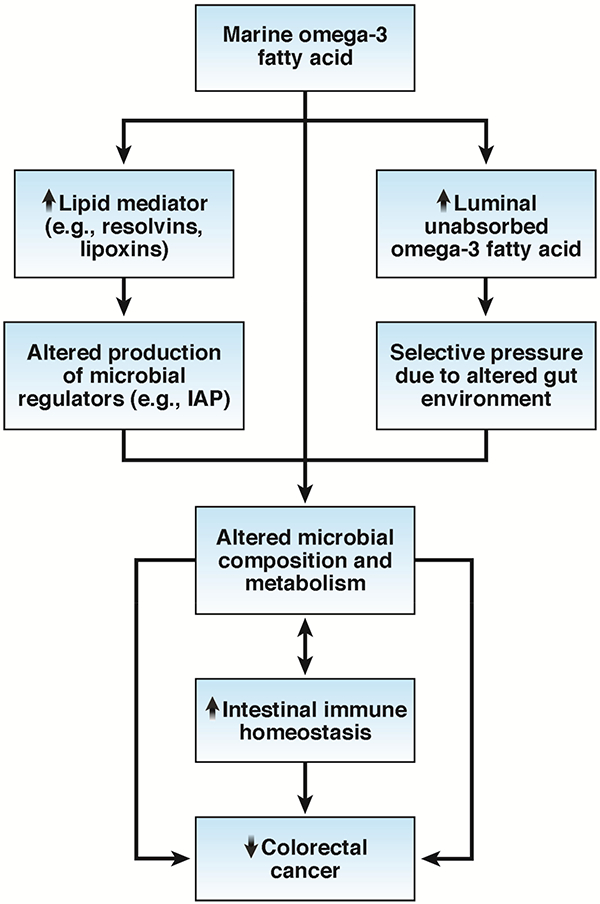Figure 5.

Pathways linking marine omega-3 fatty acid, gut microbiota, and immune function in colorectal cancer. Marine omega-3 fatty acid increases the abundance of Bifidobacterium and Lactobacillus genera and reduces the abundance of Fusobacterium nucleatum and lipopolysaccharide (LPS)-producing bacteria (e.g., Escherichia coli), possibly by altering the production of microbiota regulators (e.g., intestinal alkaline phosphatase [IAP]) via changes in tissue lipid mediators (e.g., resolvin) or by modifying the gut environmental conditions that in turn confer selective pressure on the microbial community. The changes in the microbial composition can, either directly or indirectly via microbial metabolites (e.g., hydroxyl fatty acids and short-chain fatty acids), help preserve intestinal immune homeostasis and protect against colorectal cancer, whereas some immune factors can conversely affect the makeup of the microbiota, promoting a reciprocal host-microbe interaction.
